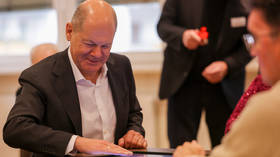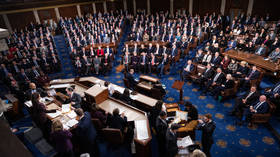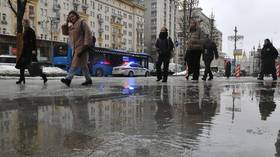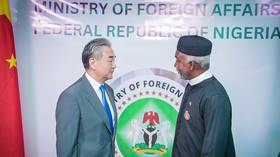Ukraine bans its officials from criticizing authorities
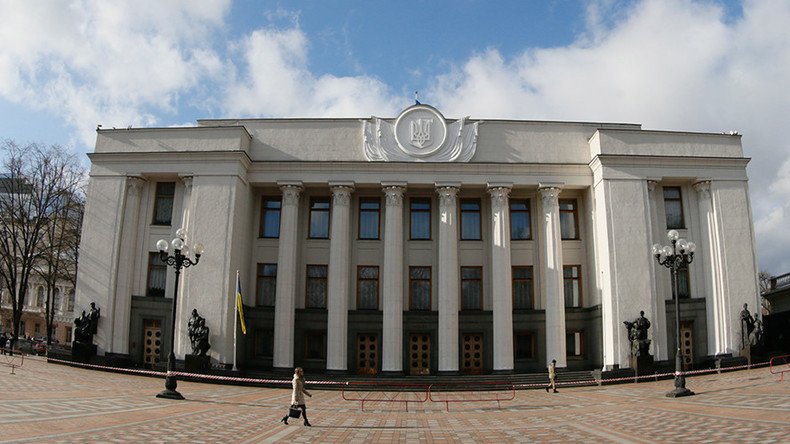
The Ukrainian government has banned all civil servants from publicly expressing criticism towards the work of state institutions or officials amid the ongoing political crisis and the cabinet’s failure to tackle corruption.
The public servants should "avoid any public criticisms of the work of state institutions and their officials," says a new decree outlining “ethical standards” for Ukrainian officials, which was published on the Ukrainian cabinet’s official website.
According to the document, state service inevitably envisages “forming a positive image of the authorities.” It also demands that the officials avoid “actions that could harm the interests of the state service or negatively influence the image of a state official.”
'I doesn’t see swastika' Kiev mayor on abuses by Ukrainian troops https://t.co/9Bi8JO8oEupic.twitter.com/h5kY1YeXS4
— RT (@RT_com) March 1, 2016
Additionally, the new decree introduces a special rule on “loyalty” for all civil servants that envisages the ban on criticizing state officials. The act also demands that all the civil servants should be familiarized with the new rules and fully comply with them, otherwise facing disciplinary action.
According to the government website, “The government has decided to introduce standards of ethical conduct for civil servants to restore public faith in the work of the state bodies and officials.”
Apart from the “loyalty rule,” the new ethical standards for Ukrainian civil servants also include principles of “serving the state and the public,” political neutrality, transparency and accountability. The act generally follows a Polish model, the government website states.
#Ukraine’s top narcotics cop makes ‘junkies’ cook drugs live on TV https://t.co/st710YGrW8pic.twitter.com/vNMtrZ6DHL
— RT (@RT_com) March 1, 2016
The decree also provoked criticism among some civil servants that denounced it as a violation of the freedom of speech and a break with the officially proclaimed pro-western reform policy.
Olena Minitch, a department head in the economy ministry, said in a Facebook post that the new ethical rules were apparently “created hastily and adopted quickly" in the view of the former Ukrainian Economy Minister Aivarus Abromavicius’s allegations concerning corrupt state practices.
Denmark to Ukraine: Follow Minsk agreement, or we could drop Russia sanctions https://t.co/IqxSFhXARYpic.twitter.com/HF9R4i7uhu
— RT (@RT_com) February 6, 2016
Abromavicius recently resigned in protest over the slow pace of reforms in the country accusing state officials of widespread corruption, which he did not want to “cover.”
At that time, Denmark’s Foreign Minister Kristian Jensen called the scandal with Abromavicius a symptom of a government that has been unable to carry out promised measures to overhaul police, energy companies, and customs, in a country that has regularly been ranked as one of the most corrupt in the world.
'Ukraine is a moral & political black hole on the brink of collapse' (Op-Edge) https://t.co/9EvlLMbAegpic.twitter.com/iFZF6YcSbx
— RT (@RT_com) February 22, 2016
Ukraine is facing an ongoing political crisis with the Ukrainian Prime Minister Arseny Yatsenyuk’s approval ratings falling to less than 1 percent. He and his Cabinet recently survived a no-confidence vote after President Petro Poroshenko had called for his resignation, partially thanks to dozens of MPs in Poroshenko’s own faction voting for the PM to keep his job.
Current Ukrainian government came to power in 2014 after a coup that ousted the former President Viktor Yanukovich and plunged the country into a civil conflict.
Both Ukrainian President Petro Poroshenko and the country’s PM Yatsenyuk promised to conduct reforms, improve the economic situation and bring Ukraine “closer to Europe.” However, little was done in this field so far with the crisis in country’s economy still deepening and the status of the Eastern Ukrainian regions remaining uncertain.



